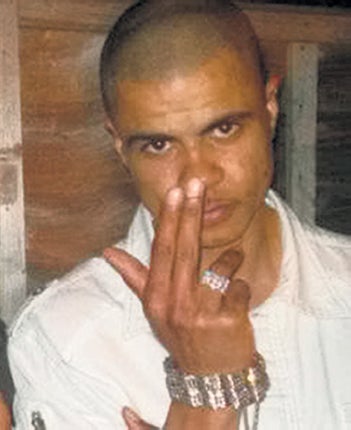Gang suspect killed by police did not fire his gun, tests show

The man whose death was used as a spark for rioting and looting did not fire his weapon before being killed by armed police, investigators have said.
Mark Duggan, 29, was shot dead by officers during a pre-planned operation to carry out an arrest last Thursday. His death was a trigger for the first night's rioting in Tottenham on Saturday, which has spread to other areas of the capital, and to other cities.
Scotland Yard has faced criticism for its handling of the case, and has been accused by members of Duggan's family of not providing them with an adequate explanation of the events which led to his death.
Police announced shortly after the shooting that a non-police issue handgun was recovered close to the scene of Duggan's death. The Independent Police Complaints Commission (IPCC) said yesterday that ballistics tests from the weapon showed "no evidence" that it had been fired.
Early media reports revealed that a bullet had been found lodged in the radio of a police officer at the scene, leading to speculation that an exchange of fire had taken place. But forensic tests commissioned by the IPCC have revealed that the bullet found in the radio was a police issue bullet "consistent with having been fired from an MPS Heckler and Koch MP5".
An armed officer shot Duggan with two bullets: one fatal to his chest, and the other to his bicep.
Forensic officers have told the IPCC it may not be possible to "say for certain" whether the handgun found near Duggan was fired. The IPCC said further tests are being carried out to establish this, and that the investigation into the circumstances of the shooting were continuing with a CCTV trawl of the area.
The IPCC said that the gun being carried by Duggan was a "Bruni" self-loading pistol, illegal under the Firearms Act. Tests also showed the gun had a "bulleted cartridge" in the magazine, meaning it was loaded.
Scotland Yard appealed for calm during the investigation. "Mr Duggan's family have publicly stated that they do not in any way condone the violence we have witnessed on the streets of London. There can be no excuses for this behaviour," a statement said.
Rachel Cerfontyne, the IPCC commissioner, explained the need for a full inquiry: "I also have a responsibility to balance the need to provide information with the need to avoid adversely affecting other judicial and coronial processes. This means that it would not be appropriate for me to put all the information we receive into the public domain when we receive it. I assure you that our findings will be made public as soon as we can legally and legitimately do so."
An inquest into Duggan's death, which began yesterday at North London coroner's court, in High Barnet, heard that he died of a single gunshot wound to the chest. He was pronounced dead at 6.41pm on Thursday evening.
Colin Sparrow, the deputy senior investigator for the IPCC, told the brief hearing that the organisation's "complex investigation" could take four to six months. The coroner for the northern district of Greater London, Andrew Walker, adjourned the hearing until 12 December, when a pre-inquest review will be held. Mr Walker told members of Duggan's family, including his fiancee, Semone Wilson: "Can I just offer my deepest sympathies to the family of Mark Duggan. As members of the family will know, in due course there will be an inquest touching the death of Mark Duggan and this is the first stage in that process."
